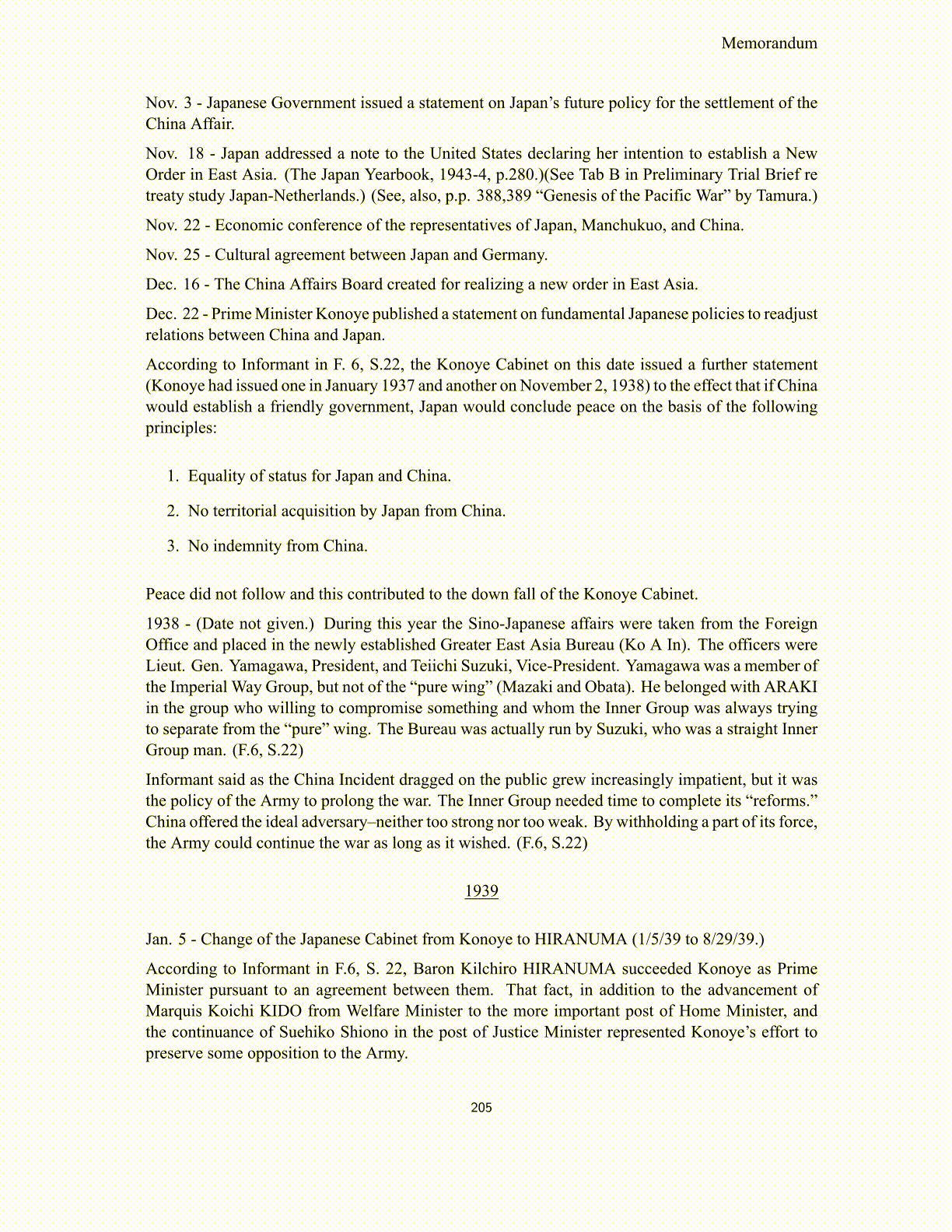
Memorandum Nov. 3 - Japanese Government issued a statement on Japan’s future policy for the settlement of the China Affair. Nov. 18 - Japan addressed a note to the United States declaring her intention to establish a New Order in East Asia. (The Japan Yearbook, 1943-4, p.280.)(See Tab B in Preliminary Trial Brief re treaty study Japan-Netherlands.) (See, also, p.p. 388,389 “Genesis of the Pacific War” by Tamura.) Nov. 22 - Economic conference of the representatives of Japan, Manchukuo, and China. Nov. 25 - Cultural agreement between Japan and Germany. Dec. 16 - The China Affairs Board created for realizing a new order in East Asia. Dec. 22 - Prime Minister Konoye published a statement on fundamental Japanese policies to readjust relations between China and Japan. According to Informant in F. 6, S.22, the Konoye Cabinet on this date issued a further statement (Konoye had issued one in January 1937 and another on November 2, 1938) to the effect that if China would establish a friendly government, Japan would conclude peace on the basis of the following principles: 1. Equality of status for Japan and China. 2. No territorial acquisition by Japan from China. 3. No indemnity from China. Peace did not follow and this contributed to the down fall of the Konoye Cabinet. 1938 - (Date not given.) During this year the Sino-Japanese affairs were taken from the Foreign Office and placed in the newly established Greater East Asia Bureau (Ko A In). The officers were Lieut. Gen. Yamagawa, President, and Teiichi Suzuki, Vice-President. Yamagawa was a member of the Imperial Way Group, but not of the “pure wing” (Mazaki and Obata). He belonged with ARAKI in the group who willing to compromise something and whom the Inner Group was always trying to separate from the “pure” wing. The Bureau was actually run by Suzuki, who was a straight Inner Group man. (F.6, S.22) Informant said as the China Incident dragged on the public grew increasingly impatient, but it was the policy of the Army to prolong the war. The Inner Group needed time to complete its “reforms.” China offered the ideal adversary–neither too strong nor too weak. By withholding a part of its force, the Army could continue the war as long as it wished. (F.6, S.22) 1939 Jan. 5 - Change of the Japanese Cabinet from Konoye to HIRANUMA (1/5/39 to 8/29/39.) According to Informant in F.6, S. 22, Baron Kilchiro HIRANUMA succeeded Konoye as Prime Minister pursuant to an agreement between them. That fact, in addition to the advancement of Marquis Koichi KIDO from Welfare Minister to the more important post of Home Minister, and the continuance of Suehiko Shiono in the post of Justice Minister represented Konoye’s effort to preserve some opposition to the Army. 205